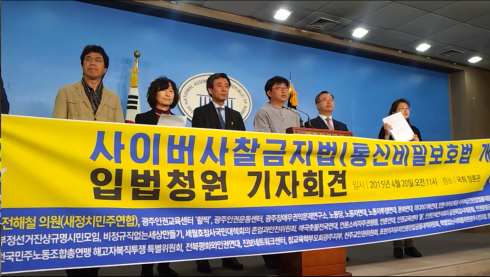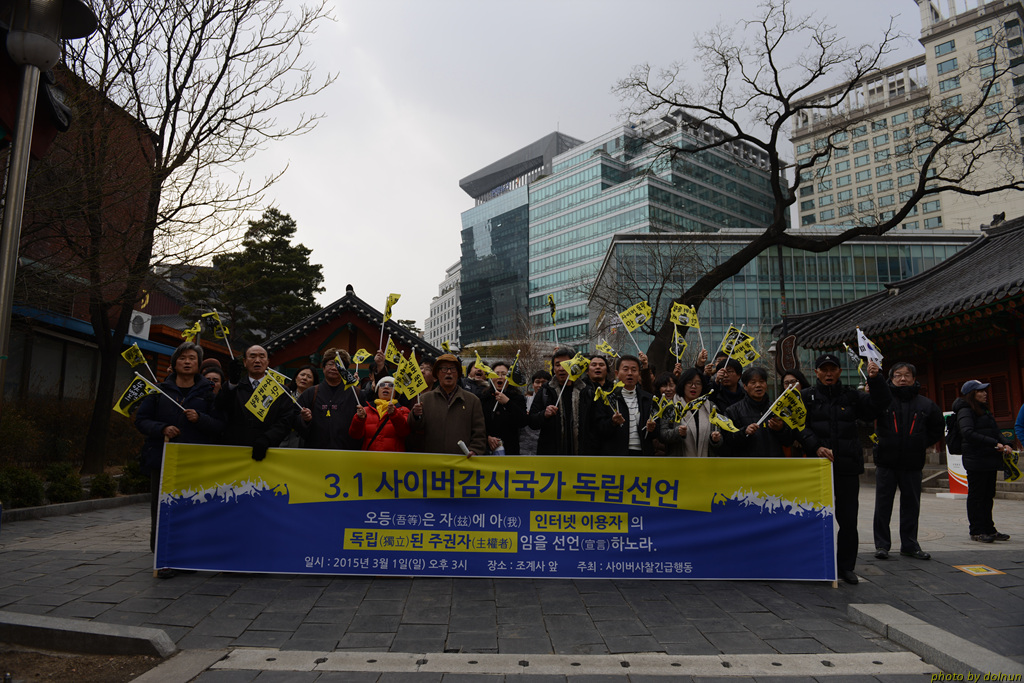
The ‘Urgent Action Network against Cyber Surveillance’ (Urgent Action Network), which is composed of 19 groups including human rights organization, labor party and labor unions, held the press conference to submit the petition for legislation of so-called ‘cyber surveillance prohibition act’, actually a revised bill of ‘Protection of Communications Secrets Act’(PCSA), in the national assembly on April 20, 2015. The petition, in which 2,910 people have signed, will be introduced and proposed in the national assembly.



